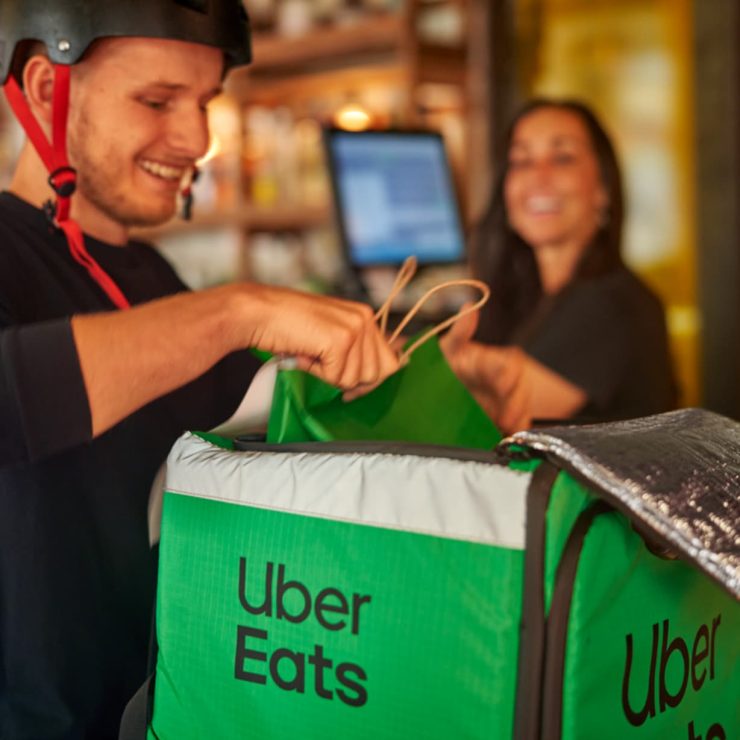Modern laws are needed to protect workers in this growing industry, says labour minister

Photo via UberEats.
Legislation passed last week will improve working conditions for app-based gig workers in B.C.
The new laws will allow the development of regulations to protect those who work for ride-hailing, food-delivery, and similar services. Workers will be paid 120 per cent of B.C.’s minimum wage during the time that they accept an assignment until it is fulfilled. This amounts to about $20.10 per hour.
The new rules also prohibit companies from withholding and deducting from their workers’ tips, and wage statements will be given every pay period to provide employees with clear information about their earnings. Additionally, worker’s compensation coverage through WorkSafeBC will be a part of these workers’ contracts, helping them in the event that they are injured on the job.
The Martlet asked Harry Bains, minister of labour, what motivated him to work on this legislation. “As you know, our economy is changing and our labour laws were designed to deal with our traditional employee-employer relationships,” he said. As jobs shift to being gig-based and less consistent, our labour laws need to match these new industries, explained Bains.
“We went around and we consulted with [app-based gig] workers,” said Bains. “Face to face meetings were held, and online input was sought and received.” From these conversations, Bains said that he and his team identified four key concerns that workers were keen to solve: pay transparency, accurate trip information, coverage for workplace injury, and expense compensation for their vehicles.
Emma Carter is in her final year studying psychology at UVic. She decided to sign up to deliver food for DoorDash, one of the many food delivery services in B.C. The job is a popular one for students looking to pay for their education and work flexibly. “I’m in six courses this semester and a lab, so my schedule is super busy,” she told the Martlet. “I needed a job where I could make my own hours and pick and choose when I could work.”
She’s been enjoying her time as a DoorDash driver. “Honestly, it’s so awesome. It’s fun; you can play music in the car, and it’s almost a bit of a rush,” she said. Carter added that she relies on the revenue she makes from tips, saying that the wage from the company alone is not enough.
Carter explained that DoorDash provides two options to calculate her pay. She can either be paid by the number of orders she fulfills or be paid hourly. Carter said that the first option is much more lucrative, but can be stressful because DoorDash estimates the trip’s revenue based on an assumed tip amount.
Though she is allowed to keep all of her tip money, she worries about others who might be exploited in this unregulated industry. “If [companies are] taking tips, you’re not making minimum wage because you’re paying for your own gas and your own car insurance,” she said.
Carter is excited about the new legislation. “I think that’s a great addition,” she said. “It’s a better way than people getting taken advantage of by companies.”
“I do wonder if they’ll make a limit to how many hours you can work,” added Carter. “What people can do right now is they can work multi-platform,” she explained, saying that it’s popular for drivers to use multiple apps at once to maximize their earnings.
That flexibility isn’t going anywhere, said Bains. “Sometimes, [workers] engage with two or three apps at a time,” he said. “That is one thing that they will continue to enjoy.”
Bains is confident that these legislative changes will improve the lives of app-based workers. “Early next year, regulations will be ready and then we can implement all of these changes,” he said. “B.C. will be the first [province] to make these changes, [and to] provide the basic minimum standard to these workers.”






